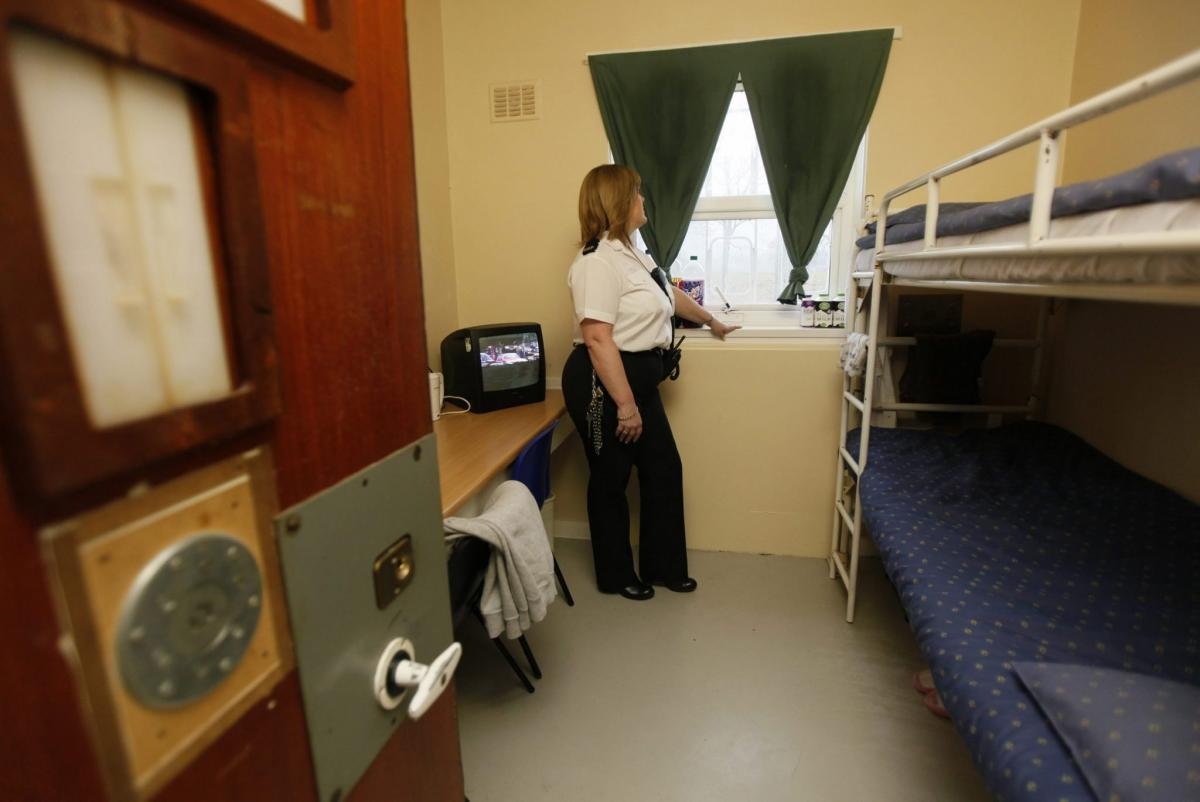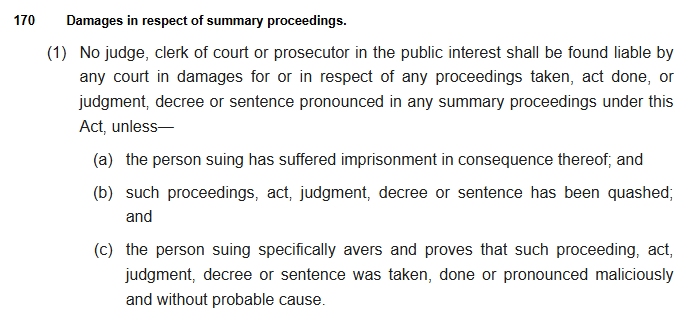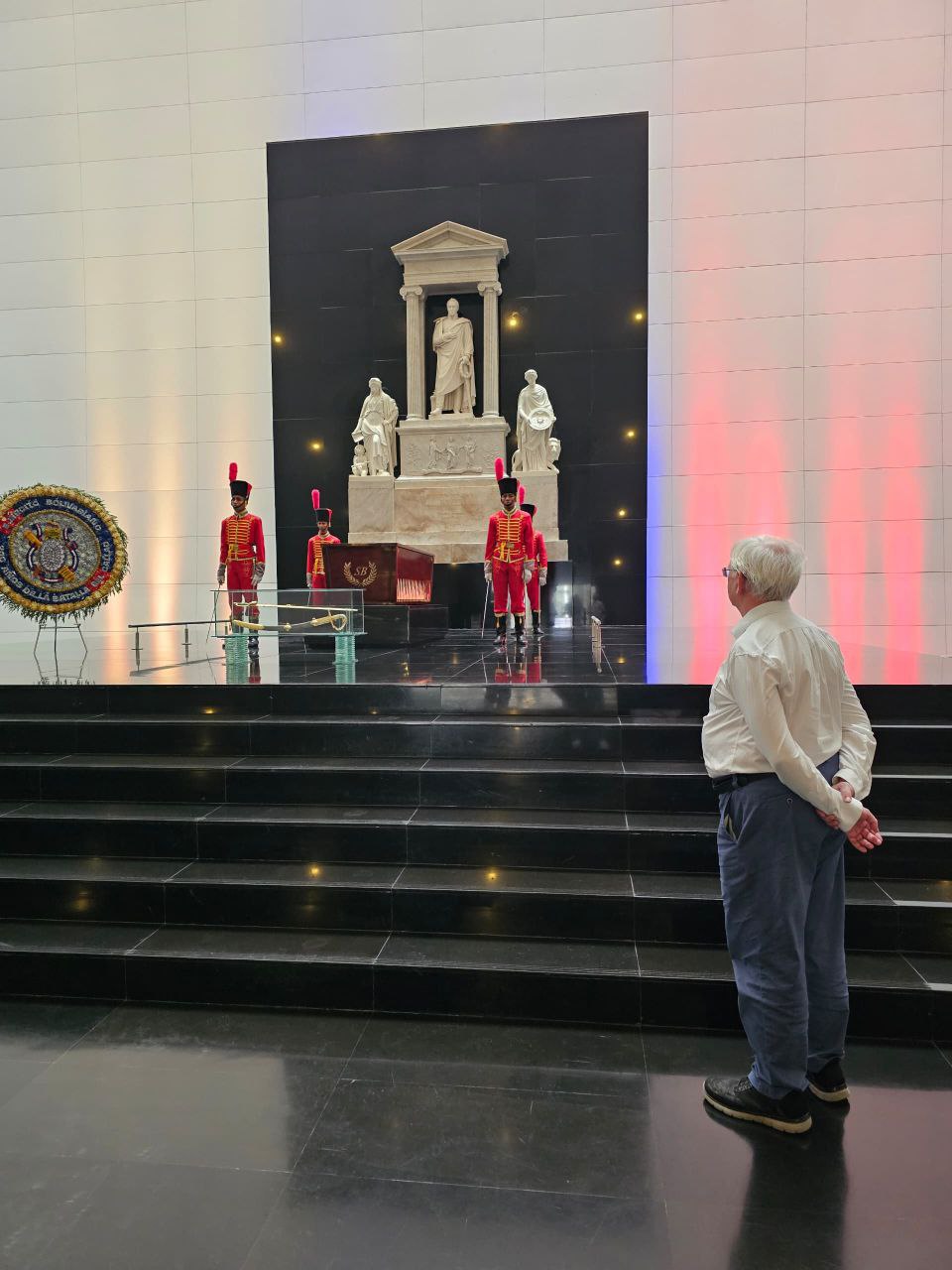The House of Lords and the Supreme Court
This is another guest contribution from Ewan Kennedy. We are going to hear a lot about courts in the next week. I think we can all benefit from knowing a little more about them. Ewan graduated from Glasgow University with a First in 1968, also studied at the Hague Academy of International Law, was inContinue reading "The House of Lords and the Supreme Court"
This is another guest contribution from Ewan Kennedy. We are going to hear a lot about courts in the next week. I think we can all benefit from knowing a little more about them. Ewan graduated from Glasgow University with a First in 1968, also studied at the Hague Academy of International Law, was in general practice in law for 42 years, he now lives in Argyll and involves himself mainly in environmental work.

The House of Lords and the Supreme Court
Introduction
Prior to the establishment of the Court of Session the administration of justice in Scotland was highly fragmented.
Criminal cases, apart from the four “Pleas of the Crown”, murder, rape, treason and arson, were largely in the hands of local aristocrat landowners and the system was seen as something of a right of property, until abolished in 1747 in the wake of the second Jacobite rising.
Most Scots are probably unaware that until 1926 there was no appeal against conviction by a judge and jury in the High Court of Justiciary. The Court of Criminal Appeal was only established after decades of campaigning by Arthur Conan Doyle and others on behalf of Oscar Slater. It then took two Acts of Parliament to get him justice, as the new court held that the first Act wasn’t retrospective. Thus in theory, and in earlier times in practice too, you could be found guilty one day and on your way to the gallows the next, unless a pardon was arranged for you.
Accordingly, the rest of this note applies to civil cases only, until we get to the end!
History
The Court of Session was established in 1532 by King James V in response to a Papal Bull of the previous year. As students we were told that the Pope waited until a building had emerged on site before parting with the money to finance it. Prior to that, justice had been in the hands of the Kings Council, his privy council, but as most of the important land and property disputes related in some ways to the Church, one suspects many matters were being referred to lawyers based in Rome. Having a proper College of Justice, with dedicated judges styled as Senators, must have been a great improvement, and the titles remain to this day.
The Scottish negotiators of the Union were anxious to secure the total independence of the Scottish legal system and the terms provided that no case from the Scottish courts would be subject to appeal to a court in England. Article XIX of the Treaty expressly preserved the Court of Session “in all time coming”. The separation of Church and State was also preserved, as we all know.
Very soon after 1707 the first appeal cases started to arrive in London from the Court of Session and were accepted for hearings in the House of Lords, then the more significant chamber of the Houses of Parliament. Technically the Lords did not sit as a court, being styled a judicial committee. Any complaints received at that time were plainly ineffective, because the practice was well established by the time politics in the United Kingdom started to heat up in the next century.
The repeal of the Test Acts in 1828 emancipated both Roman Catholics and Protestant dissenters, freeing them to take up public positions and generally advance themselves. The latter then started agitating against the system of patronage in the established Church of Scotland, whereby the local landowner had the power to appoint the local minister. The turmoil led to the “Auchterarder Case”, where the Earl of Kinnoull attempted to force the appointment of one Robert Young against the wishes of the congregation, who voted 286 to 2 against him.
The Earl now consulted the Dean of the Faculty of Advocates, John Hope, who agreed to act for Mr Young and petition the courts, presenting the case before his father, Lord President Hope, who found in Mr Young’s favour. The decision, whereby the civil court of the land purported to overturn an Act passed by the Church of Scotland, brought the two pillars of society into conflict. The General Assembly of the church now decided to appeal to the House of Lords, which declared the Veto Act to be illegal. I leave it to others to identify the breaches of the Claim of Right involved in this episode.
By the time we get to the Twentieth Century the jurisdiction of the House of Lords was well established and indeed frequently welcomed by practising lawyers and their clients, often seeing issues in more pragmatic and sensible ways than the senators in Edinburgh.
A prime example would be Donoghue v Stevenson in 1932, the famous “snail in the bottle” case, which had failed in Edinburgh but went on to become the foundation of the modern law of negligence in most of the Western common law jurisdictions, providing the foundation for modern conceptions of consumer protection.
At a more mundane level it impacted on my professional life, too. My late friend Douglas MacKerrell and I were appointed to be chairs of Rent Assessment Committees with the task of fixing “fair rents” in privately rented houses. In view of the notorious housing shortage in Glasgow our committees discounted the figures by 40%, which resulted in the landlords taking an appeal. The Court of Session failed to see the point of a system of rent control and overruled us by a majority of two to one, a decision that was overturned by the unanimous ruling of the House of Lords. (Janet Husband v Western Heritable, 1982)
I make these points as a word of warning to those of us hoping to live soon in an independent Scotland. We need to look seriously at how to ensure that our own supreme court judges are fully aware of the world in which we all live, rather than the restricted environment whence so many of them have come.
The UK Supreme Court
In 2005 the UK Parliament passed an Act to rationalise the status of the Supreme Court, by removing some anomalies. Of relevance to this note, the status of the court was changed at last from being a Lords committee and the judges were removed from the legislature. The changes became effective from 2009, although to the outside world the court does not look much different, apart from the fact that they no longer wear wigs and gowns.
The original line up had two Scottish judges, Alan Rodger, who died in 2011, and David Hope, who retired in 2013, both extremely bright and decent men. Alan was a fellow student and David Hope someone I occasionally instructed as counsel and latterly saw in the Scottish appeal court before he went South (and descended from those earlier Hopes!).
At present the court contains twelve judges, of whom two, Lords Reed and Hodge are Scots and were, in my opinion, clearly both appointed on merit.
For anyone from an American background reading this I should stress that I believe politics has not been involved in any of these appointments.
The court continues to hear civil cases from the Court of Session, although they are few in number, due no doubt to the expense involved. A quick look through the court list brought up just a couple, which I offer as illustrations.
John Hastings v Finsbury Orthopaedics Limited, decided on 28 April 2022, was a fairly standard damages case appeal regarding a failed hip replacement, exactly of the type that would formerly have gone to the House of Lords. Sadly for Mr Hastings, it failed.
The second case relates to my comment in the introduction.
While the Supreme Court does not deal with routine Scottish criminal appeals, it does hear cases where there is a human rights element, for which a certificate from either the Scottish High Court judges or the Supreme Court Justices themselves is required.
James Craig v Her Majesty’s Advocate, decided on 23 February 2022, is a case of this, being brought under Article 8 of the European Convention on Human Rights.
The Scottish Court of Criminal Appeal, consisting of Lady Dorrian, Lord Brodie and Lord Turnbull, had unanimously backed sending Mr Craig to the States, but the Supreme Court has sent them homeward to think again, following excellent work by Kings Counsel Aidan O’Neill and Fred Mackintosh.
Further criminal appeals on human rights grounds are believed to be in train, on behalf of the late Mr Megrahi and the very much alive Mr Craig Murray.
And on 11 and 12 October we should be able to observe Lord Reed, Lord Lloyd-Jones, Lord Sales, Lord Stephens and Lady Rose hearing a live submission from Dorothy Bain KC (and spouse of Lord Turnbull!) on behalf of the Scottish Government and considering the written one from the SNP, prepared by Claire Mitchell KC and David Welsh, Advocate.
MY COMMENT
Next week we will see the “attempt” to win the power from the Supreme Court to hold Nicola’s Gold Standard Referendum. I am indebted to Ewan for this short lesson for those of us not trained in the law to help understand how the Court came about. This is useful, as an example Ewan quotes that those legal parties from Scotland putting together the Union inserted a clause that the supremacy of the Court of Session in Scotland would remain as such “in all time coming”. To my untrained eye that seems quite specific that no Court in England can have a higher status or importance than the Court of Session in Edinburgh. How remarkable then to have a SNP led Scottish Government in Edinburgh voluntarily handing over this important decision on Scotland’s future constitutional path to an English Court?. It’s going to take more than lawyers to explain to me the sense in that.
I am, as always
Yours for Scotland
BEAT THE CENSORS
Unfortunately some sites, which claim to be pro INDY are not as they appear but secretly filter out any comment that is not 100% supportive of the SNP and their leader. This has got worse in recent times and most bloggers are completely banned from these pages. We rely on our readers to combat this blatant censorship and I am extremely grateful when readers share our articles and ensure others have the opportunity to discuss all topics freely and without censorship.
FREE SUBSCRIPTION
Another way to avoid censorship is to take out a free subscription to this site which are available on the Home and Blog pages of this website. This ensures you are the first to get new articles sent to you directly by email each day.
SALVO
One of the most exciting steps forward during 2022 has been the work of Salvo which is very much driving our cause when most of the politicians have been disappointing. They require funding. I don’t. So the donate button on this site which allows small donations of only £3 will now send all funds raised on to Salvo to help them continue and expand the great work they are doing.
LIBERATION.SCOT
If you have not already done so please sign up to Liberation.Scot. It will be from that body that people will be able to apply to become members of the first Scottish National Congress which is currently being organised and which will be launched early in 2023. The SNC will debate and organise Scotland’s case to DECOLONISE our country.
What's Your Reaction?











































